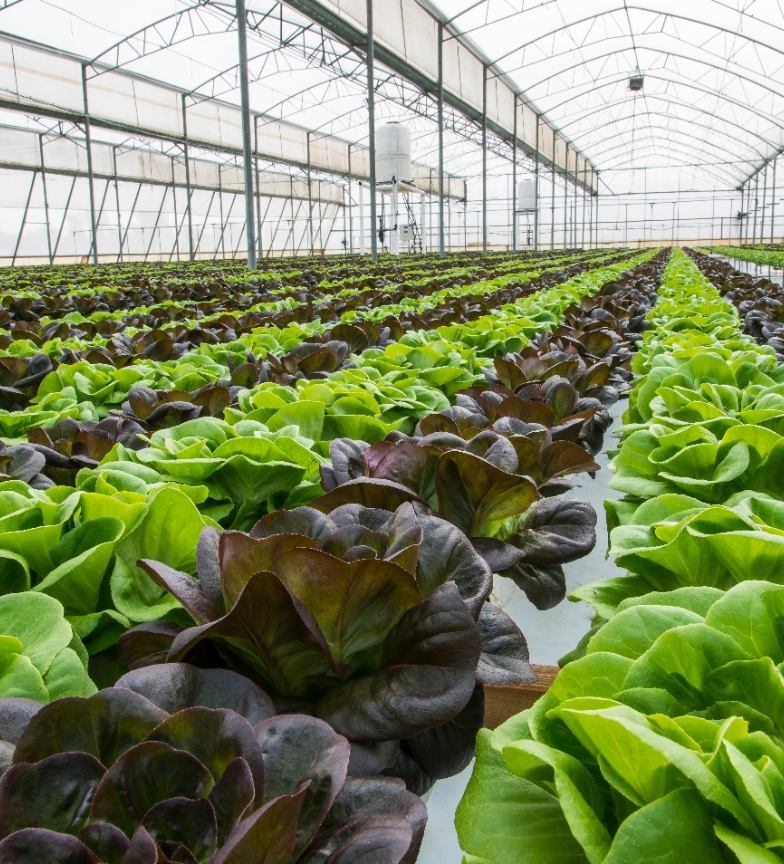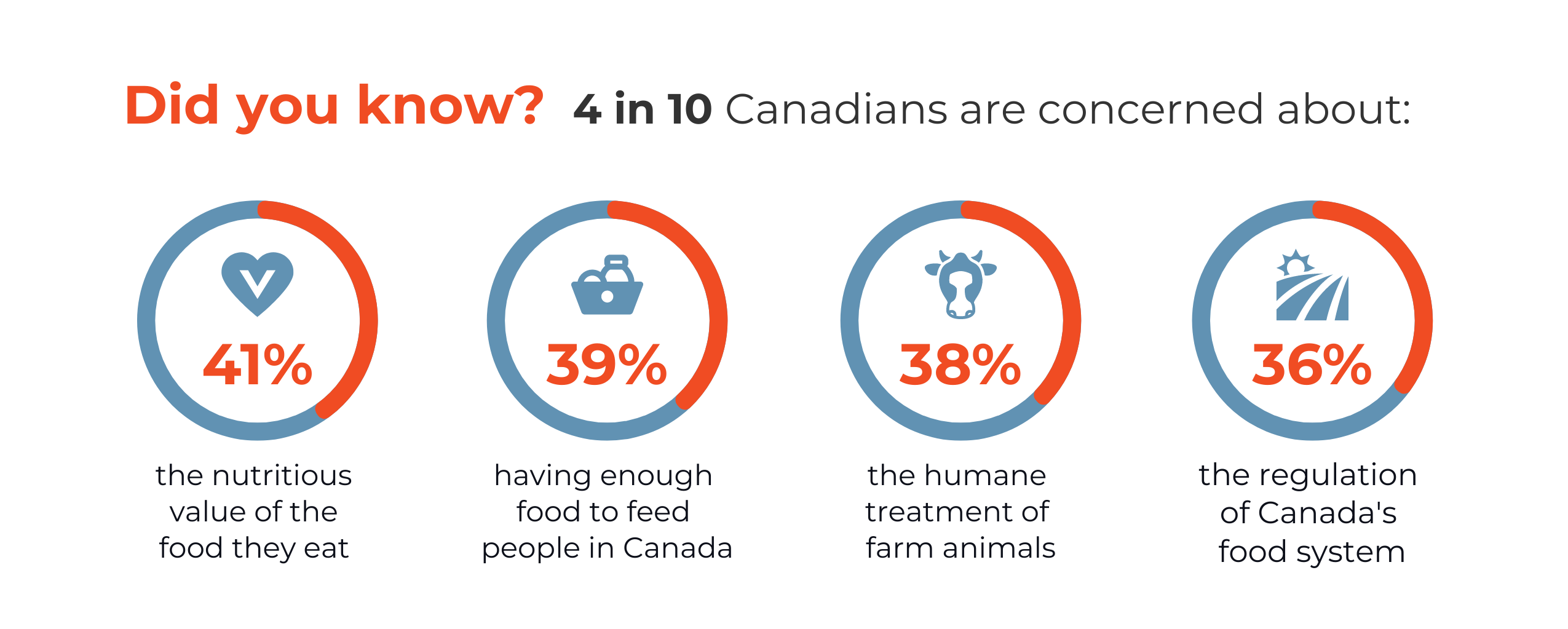

 " alt="Stir fry chinese noodles with shrimp and vegetables in a black bowl">
" alt="Stir fry chinese noodles with shrimp and vegetables in a black bowl"> " alt="Hydroponic lettuce growing in a greenhouse">
" alt="Hydroponic lettuce growing in a greenhouse">Generally, people care about the quality of their food for a variety of reasons, including health, taste, sustainability, and animal welfare. This has led to a growing demand for high-quality, organic, locally sourced, and sustainably produced food. The quality of the food can affect its nutritional value, taste, texture, and overall enjoyment of the eating experience.

Image source: 2022 Public Trust Research Report
The term ‘food quality’ refers to the attributes of food that determine its value and desirability for consumption. There are various factors that contribute to food quality, including:
People want food that tastes good, is appealing to look at and is good for them – achieving this starts with high-quality ingredients. Although things like personal preferences, cultural norms and regulatory standards can influence the perception of food quality, the baseline of high-quality food is consistent across the board.
According to a recent survey conducted by the Canadian Centre for Food Integrity (CCFI), 92% of Canadians are concerned about the quality of the food they eat. The survey found that Canadians prioritize factors such as taste (67%), nutrition (62%), and safety (57%) when it comes to food quality.
It also showed that 61% of Canadians are willing to pay more for food that is produced in Canada, and 59% are willing to pay more for food that is produced sustainably. This shows that there is a growing demand for high-quality, locally sourced, and sustainably produced food in Canada.
Other than the obvious reasons of taste and satisfaction, food quality is important for several other reasons, including:

Employee satisfaction: The quality of food can have a significant impact on employee satisfaction. A survey by Morneau Shepell found that 70% of Canadian employees consider access to healthy food options as an important factor in their overall health and wellness. People who enjoy the food they eat during their work or school day are more likely to be happier and even more productive.

Health and wellness: High-quality food can contribute to a healthy and balanced diet, which can help employees maintain good health and prevent chronic diseases. This can reduce healthcare costs and absenteeism in the workplace.

Reputation: The quality of food provided in corporate food services can reflect on the company’s overall reputation. Even an isolated incident, where the quality of products has been compromised, can have a negative effect on a food service provider’s reputation. An employer that provides high-quality food on site can be seen as caring about its employees and as a desirable place to work.

Cost savings: Providing high-quality food can also help reduce costs by improving employee productivity and reducing absenteeism. Additionally, offering healthy options can help reduce the cost of group medical benefits for the company and its employees.

Compliance: In some industries, such as healthcare or education, there may be regulations or guidelines for the quality and nutritional value of food provided to employees or students. Ensuring compliance with these regulations can help avoid legal issues and maintain a good reputation.
Having quality control measures in place are necessary to ensure food is safe, fresh, and meets guests’ expectations. For food service providers, there are several quality-control measures that should be taken to ensure the safety and quality of the food they serve. A few examples include:

Hazard Analysis and Critical Control Points (HACCP) Plan: This is a systematic approach to identify, evaluate, and control hazards that may cause foodborne illnesses.

Good Manufacturing Practices (GMPs): These are standard operating procedures to ensure that food is produced, handled, and stored in a clean and sanitary environment. GMPs cover areas such as personnel hygiene, equipment maintenance, pest control, and sanitation.

Supplier Approval and Verification: Ingredients and products should only be purchased from approved and reputable suppliers. Products should meet the specifications and comply with regulatory standards of the food service provider.

Training and Certification: All employees who handle food should receive training in food safety, hygiene, and sanitation. Depending on the jurisdiction, some employees may be required to obtain certification from a recognized training program.

Food Traceability: Food service providers should have a system in place to trace the origin and destination of their food products. This can help identify the source of any quality or safety issues and facilitate product recalls if necessary.
The meals we produce reflect our brand and reputation – that’s why we stand by our scratch, fresh, local motto. What does that mean for our guests? And how does that impact the quality of our food?
At Dana, ‘fresh’ means that the ingredients we use are never frozen. ‘Scratch’ means we have full control of the process of creating our food – everything is done by us and never pre-cooked or pre-assembled. This gives us greater control to execute the best cooking technique that highlights the flavour and quality of the ingredients being used and ensure the meals we serve are high quality, safe and delicious.
In addition to taste, flavour, and presentation, we focus on consistency. Consistency is crucial to create loyal guests who return time and time again, and lead to positive reviews and recommendations. This in turn helps to boost our clients’ reputations if staff, students, and visitors are raving about the food served at their facilities.
The recipe is simple: quality food starts from high-quality ingredients. Our dedication to quality means our food contributes positively to our guest’s overall food experience by offering delicious flavours, beautiful presentation, a wide range of options, consistency, and potential health benefits. After all, we’re elevating the food service experience. Every day!
Want to learn more about how Dana can make a difference with its food service offerings? Get in touch with our team today!